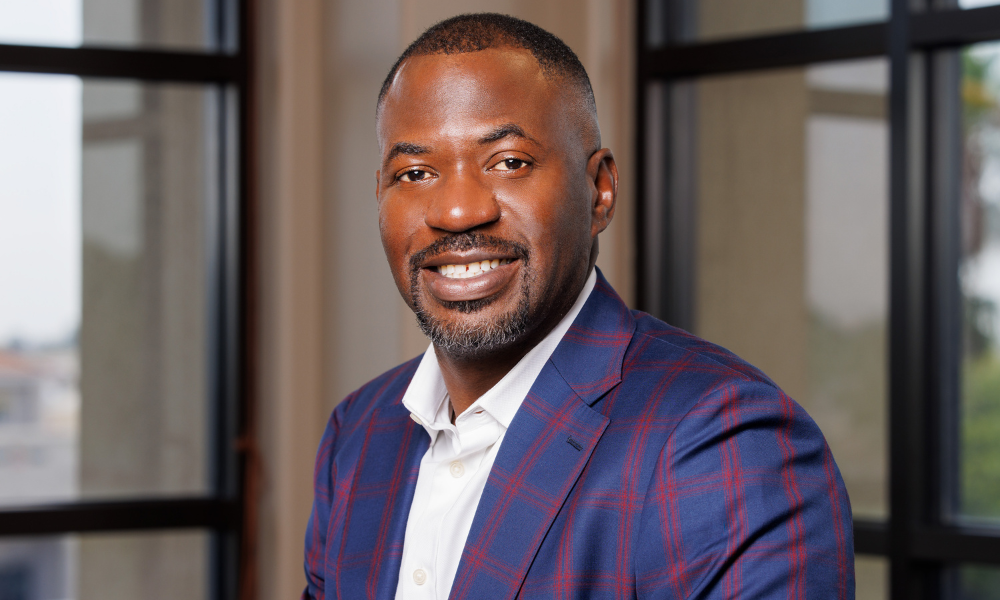

The wealth management industry has long struggled with diversity, particularly in leadership roles. And while progress has been made, Black professionals remain underrepresented in the field. Emlen Miles-Mattingly, founder and CEO of Gen Next Wealth, says that massive barriers still exist – and that more leaders need to step up and enact change.
“They've always struggled with this," Miles-Mattingly adds. "The crazy thing is, I've been in this industry for almost 25 years – and I've never seen it get [better]. There are probably more people of color now than there’ve ever been, but there’s still not enough.”
While diversity initiatives have gained traction, the industry’s cultural and structural challenges continue to hinder meaningful progress. As Miles-Mattingly explained, the first thing he considers when he thinks about representation and inclusion is creating safe spaces – something that’s easier said than done.
"I really feel like it’s incredibly difficult to make space for Black professionals in this industry because it’s the chicken-or-the-egg situation. We want to have more, but this doesn’t seem like the most friendly place for more Black professionals. Point-blank, period. It’s a great place to make a career, it’s a great industry – it’s just not been the most friendly place for Black people."
Even with increased awareness, systemic barriers make it unclear whether true change is on the horizon. “I don't know how much it’s going to actually change here,” he added. “I've seen a lot more Black professionals here in this space than I’ve ever seen in the 23 years that I’ve been here. I'm not sure how you might tackle this issue, because it’s always been an issue."
At Gen Next Wealth, Miles-Mattingly takes action where he can, running internships and encouraging public speaking opportunities. But the battle is ongoing.
“It's still one of the most uncomfortable industries I’ve ever been in. I don’t know how we’re going to fix it.”
Beyond representation, the financial industry has a broader role to play in addressing racial wealth disparities – a long-standing issue in the US, and something Miles-Mattingly categorizes as “the major issue.”
“We know that government has played a big role in creating some of the wealth disparities. [As such], it’s hard for advisors to come in and fix things that the government has allowed to happen.”
While some Black families have built financial stability, many still lack access to wealth-building opportunities. “Not every Black family is poor and destitute,” he points out. “We do have some families that have been well-off. I think those are the families that may have access to financial professionals in their lives, right? So how do you find those people?”
For Miles-Mattingly, homeownership remains a cornerstone of generational wealth. “I think one of the biggest things that you’re going to have in generational wealth-building is owning a home. Like, homeownership is the gateway,” he explains.
Financial advisors can play a crucial role in helping Black families acquire assets. “So where does the financial advisor play in that role? Helping people get into their first home, or helping people take the necessary steps to acquire a piece of property,” he says. “Not necessarily a primary residence – maybe they’re looking for a rental property – but some type of asset.”
The historical impact of discriminatory policies further reinforces this need. “History has told us that if you’re going to do well, it’s going to come in the form of an asset that you can later on sell and have appreciated,” he notes. “And evidence for that is the government allowing redlining and yellow-lining – and different things to stop people [of color] from acquiring assets like homes.”
The wealth management industry has an opportunity – and a responsibility – to improve representation and address racial disparities. But as Miles-Mattingly makes clear, real progress requires consistent effort, not just words.
Diversity initiatives must be followed by genuine inclusion, and firms need to move beyond surface-level attempts to hire Black professionals. “Actions speak louder than any words,” he emphasizes.
Meanwhile, financial advisors must actively support Black families in building generational wealth – particularly through homeownership and asset accumulation. The financial industry alone cannot undo systemic disparities, but it can play a critical role in bridging the gap.
For Miles-Mattingly, the key to change is persistence. Whether increasing representation or closing the wealth gap, success won’t come from trying twice and giving up. Instead, it demands a sustained, intentional effort to create real opportunities in a historically exclusionary industry.

Summit Financial unveiled a suite of eight new tools, including AI lead gen and digital marketing software, while MassMutual forges a new partnership with Orion.

A new analysis shows the number of actions plummeting over a six-month period, potentially due to changing priorities and staffing reductions at the agency.

The strategic merger of equals with the $27 billion RIA firm in Los Angeles marks what could be the largest unification of the summer 2025 M&A season.

Report highlights lack of options for those faced with emergency expenses.

However, Raymond James has had success recruiting Commonwealth advisors.
Orion's Tom Wilson on delivering coordinated, high-touch service in a world where returns alone no longer set you apart.
Barely a decade old, registered index-linked annuities have quickly surged in popularity, thanks to their unique blend of protection and growth potential—an appealing option for investors looking to chart a steadier course through today's choppy market waters, says Myles Lambert, Brighthouse Financial.
